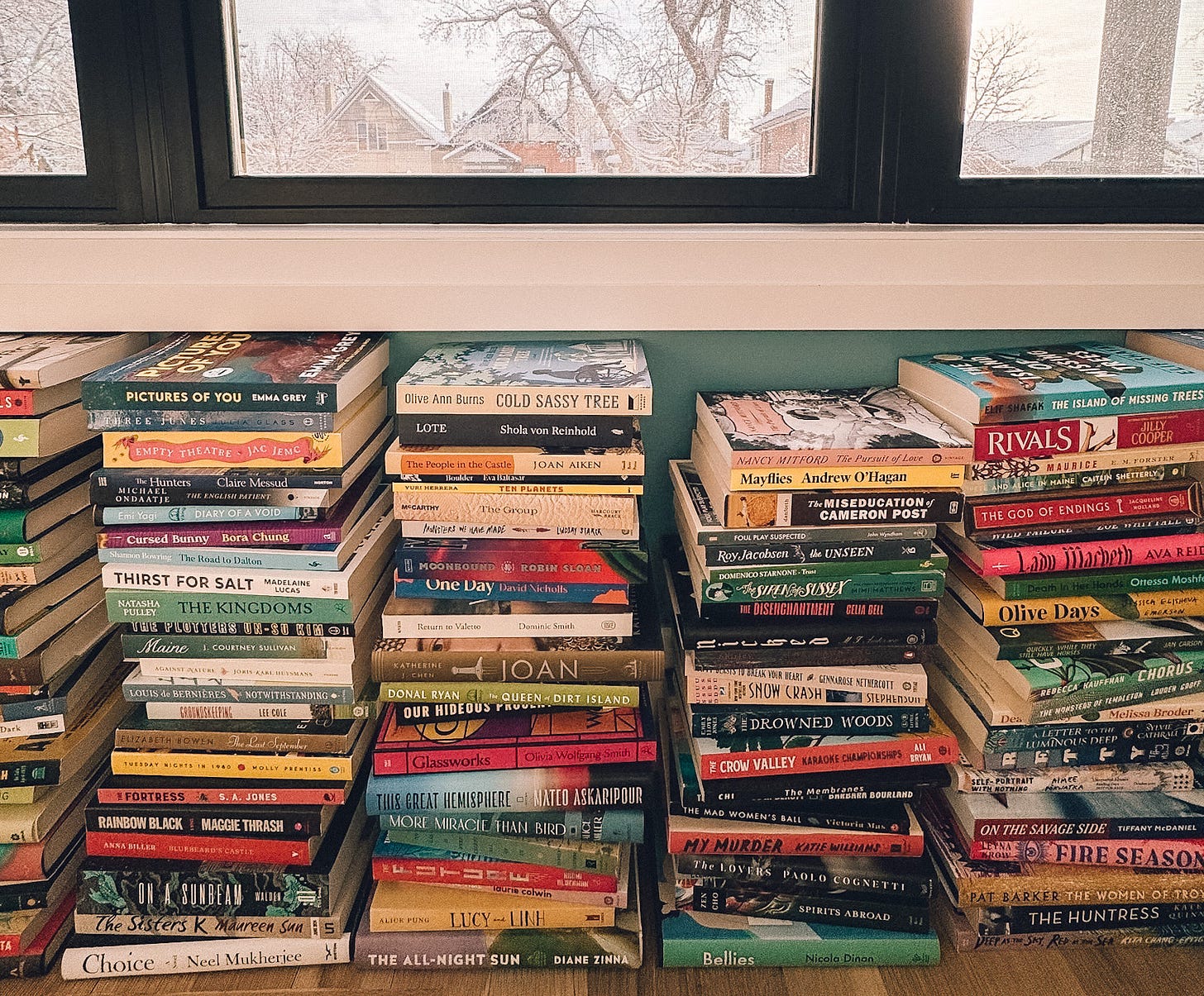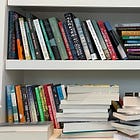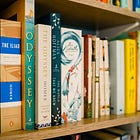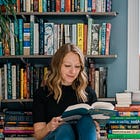Reading in Public No. 70: Is knowing your reader "type" helpful or limiting?
On equating taste with identity and a brief programming note
Before I get to today’s newsletter, I have a brief programming note to share. Starting next week, I’ll be moving the Tuesday newsletter to Wednesdays. The reason for this is simple: Since my daughter has been in full-time preschool, I’ve been making an effort to work as little as possible on the weekends. That’s made it difficult to get Tuesday posts ready to go out, and, in particular, I haven’t been as happy with the quality of my Reading in Public essays as I would like to be. This week I had the epiphany that I actually have no idea what days my favorite newsletters publish! I’m just happy to get them in my inbox, so why not make my life easier by . My hope is that you will feel the same and that moving days will hardly be noticed, but having an extra work day to write and edit will make a world of difference to me. As an added benefit of this change, I will be able to occasionally release podcast content on Mondays without overwhelming you or myself. Thanks for pivoting with me and, as always, thanks for reading.
-Sara
This weekend my friend
sent me a quiz called Read Your Color and I couldn’t take it fast enough. The concept is super fun. You are presented with 24 different hypothetical book synopses and you rate how likely you would be to read each one. At the end, you are given a color and a description of what that means for you as a reader. The quiz also shows you how much your taste aligns with the other colors (there are six in all). Even better, Read Your Color is now on Substack offering weekly book recommendations for every color, and you better believe I subscribed immediately.According to the quiz, I am primarily a Blue reader with a heavy dose of Purple. That definitely tracks both in terms of the description of each type of reader and the book examples provided, and I’m excited to see what else Read Your Color has in store for me—I mean, who doesn’t love creatively delivered book recommendations?
At the same time, this quiz brought to mind something about book internet parlance that’s been gnawing at me recently. Readers of the internet seem to feel a strong desire to find and signal our reading “types.” Sometimes this feels like a creator cultivating a reading brand to better serve the algorithm or connect with an audience. But often, it’s regular readers homing in on what they know they like because the glut of books released every year is overwhelming. Most often readers seem to identify themselves by genre (romance, mystery, literary fiction, etc.), which seems straightforward and helpful enough, but recently I’ve noticed this getting niched down even more with readers identifying the genre tropes that fit their reading style. I’ve heard readers discuss what book club (Reese or Jenna readers) and literary prizes (Booker or NBA readers) they most identify with. I know a lot of readers who type themself by the tone of books they like or how they choose what to read. I’m guilty of this myself (hello, I’m a mood reader!) and my book club has adapted its own shorthand terminology of “head reader” or “heart reader” to label ourselves and the books we read. This kind of typing isn’t necessarily new either. One of my favorite moments in Dodie Smith’s fantastic 1948 novel I Capture the Castle is when Rose and Cassandra discuss, “Which would be nicest- Jane with a touch of Charlotte, or Charlotte with a touch of Jane.”
But internet lingo and algorithms have supercharged the thinking that labels us as reader types or divides us into categories. TikTok in particular quickly categorizes users and offers us up the content that fits our perceived version of ourselves—and this very much includes books. Once the app has pegged you as a “lit fic girly” or a “romance girly,” it serves you content that fits, further cementing your self-concept. The idea that there are types of readers is so prevalent on BookTok, there are thousands of memes and videos devoted to it. Because so much of the online book space is about the aesthetic or performance of reading, shorthand reading identity markers make for good content. A GQ article about BookTok quotes author Stephanie Danler:
[Danler] wrote that TikTok is “not a social media app but an entertainment app. On it, you can’t just show a book by Clarice Lispector. The successful accounts performed being a ‘woman who reads Clarice Lispector.’”
It makes sense to me that these identities, niches, and markers are so prevalent. In our modern age, many of us seem to be in search of an identity. What are micro trends if not a buffet of options for who we can be? Much of the discourse around types of readers is reminiscent of the way we talk about personality types. Like many a millennial, I love a personality quiz and can easily rattle off my Enneagram number and Myers-Briggs type indicators. But these systems were designed to help us improve ourselves and seek balance, not permit ourselves to get stuck in repeating patterns because that’s just who we are. I think we can fall into a similar trap when we confuse taste with identity.
My point is not that readers shouldn’t seek to understand our own taste. Because we spend so many formative years of our reading lives on assigned reading, I think it’s imperative for adult readers to investigate the things they really like. Personally, it took me a long time after grad school to get in touch with my individual taste because I was so used to approaching books from an exclusively analytical lens. But equating taste with identity can be extremely limiting. Taste can and, in my opinion should evolve and expand, but this can takes (at the very least) exposure and (quite often) effort. Knowing what we like is good. Seeking recommendations within what we love is great. But staying only within the confines of a reading type can keep us from a vast world of excellent literature and keep us from growing as readers.
Maybe this is something that’s, frankly, “ not that deep.” But I’m curious to know your thoughts!
Do you identify as a certain type of reader?
Do you ever look at a book and know immediately that it’s right (or wrong) for you?
Has your reading taste mostly stayed the same or has it evolved? Did that evolution happen naturally or did it take effort?
Finally, please do check out the
quiz and Substack. It’s a fun exercise and I’m certain it will be a great source for book recommendations, whether you have a type or prefer to read the rainbow.Read more like this:
For questions, comments, or suggestions, please don’t hesitate to reach out by emailing fictionmattersbooks@gmail.com or responding directly to this newsletter. I love hearing from you!
This email may contain affiliate links. If you make a purchase through the links above, I may earn a small commission at no additional cost to you.
If you enjoyed today’s newsletter, please forward it to a book-loving friend. That’s a great way to spread bookish cheer and support the newsletter!
Happy reading!
Sara









I took the quiz and got yellow, which made perfect sense to me as a certified big feelings reader. For me, I think it's less about genre and more about style and tone? And I do think part of knowing yourself as a reader is knowing the right ways to push yourself!
Love this way of looking at "types". I was surprised taking the Color quiz about the "would definitely not read this" choice. I would almost never say that! (and to be fair, I did select that option about one of those CEO/self-help books) I also came out Blue with a lot of Purple. and his fiction recs are spot on ... not so sure about the non-fiction. I really just love having another source of book recommendations! I'm thinking that 10-years ago me would not have typed that way. I used to seek out fun, "easier" books, and now I ... don't. I have more time to read now, and enjoy challenging myself with style, structure, and theme. Also, I think your book club invites many different perspectives (on life and on reading) and that also broadens my perspective.